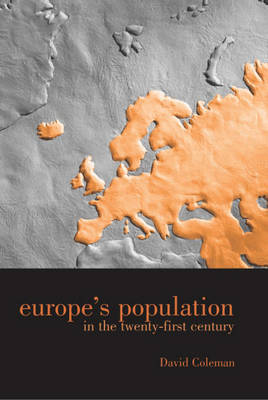Europe in the 21st century faces a series of demographic challenges. For the first time in centuries, many European countries face population decline, while those with relatively higher birth rates can look forward to a less ominous future. In all European countries, however, longer life and smaller families will make populations much older than they are today. And if high levels of immigration continue then the composition of Europe's peoples will also change substantially. Compared with continuing population growth in poorer countries, Europe will become relatively marginalized demographically. But the rest of the world is likely to follow Europe's demographic trends sooner or later. With global population decline a possibility by the end of the century, Europe's responses to demographic maturity will be relevant to the whole world. Written by a leading expert in the field, "Europe's Population in the 21st Century" reviews Europe's recent demographic history and explores future trends.
Relating low birth and death rates, family change and migration to social and economic transition, this book evaluates the challenges demographic developments pose to Europe's economic growth, social cohesion and environment and discusses ways in which problems can be resolved. Issues relating to demographic trends are hotly debated in the media. "Europe's Population in the 21st Century" explains what is happening, why it is happening and why it matters.
- ISBN10 0340764074
- ISBN13 9780340764077
- Publish Date 27 May 2011
- Publish Status Transferred
- Out of Print 22 May 2015
- Publish Country GB
- Imprint Hodder Education
- Format Paperback
- Pages 256
- Language English
